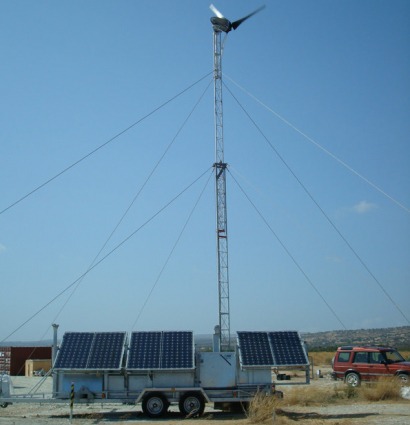
Sworder’s company is based in Cornwall in south-west England, which has come late to renewable energy, compared to the USA, Japan and much of Western Europe. While widely available taxpayer subsidies have been the catalyst for households and businesses in the region to make the necessary capital expenditure in grid-tied renewable energy systems, Sworder believes business models have been predicated on continuing subsidisation of customers, and some equipment suppliers could face extinction when subsidies decline or disappear.
Photovoltaic (PV) module manufacturers, for example, have been investing to increase production capacity, and much of this is coming on stream now, further increasing pressure on price and margin. As a consequence, distributors’ margins in the UK are also under pressure. Evidence of this is that in some parts of the construction sector, they have resorted to pre-packaging solar PV into standard kits as a means of defending their margins.
For most of the last ten years, the US, Germany, China and Australia have lead investment in renewable energy technologies and production capacity. The semi-conductor sector contraction in recent years also served to make older silicon ingot capacity available for the solar PV sector. There is no manufacturing of silicon ingots, wafers or PV cells in the UK; the economies of scale are not available. Some panel assembly is undertaken, but high labour costs make it difficult to compete against China and India.
Sworder highlights that additional obstacles to investment in grid-tied renewable energy exist in England, such as a lack of investment finance and restrictive local government planning attitudes. “In time, these constraints might ease,” says Sworder, although he warns that the decline in taxpayer subsidies is likely to continue, either when installed renewable energy capacity reaches prescribed levels or when they become politically untenable. “The latter might not be far distant given the parlous state of the finances of many economies,” he warns.
Off-grid the answer
The Kraft Maus executive admits that subsidised markets such as that prevailing in the UK are exciting for suppliers; however he stresses that there are other, much larger markets in the World which require a different approach and a different business model.
“Some two thirds of the World’s population and land mass have either no electricity or only intermittent mains supply, so the focus is off-grid power,” he explains. “Compared to the developed economies, these present their own obstacles, including financing of end users, installation, maintenance and warranties.”
The off-grid markets require cost and price models which are profitable in their own right. Significantly higher levels of system integration are required because off-grid systems can include multiple sources of power, power storage, power management, all integrated and balanced with applications.
International growth
During the last six months or so, Sworder reveals that the incoherent, off-grid renewable energy sector has evolved, with several discernible aspects beginning to crystallise. Internationally, cost pressures are opening markets for off-grid renewables in the industrial and commercial sectors. The UK is also seeing the beginning of this thinking.
The pressures to reduce fossil fuel consumption for a range of reasons are intensifying and are felt widely. There is a growing understanding that renewable energy, when correctly engineered and applied, can provide a practical and affordable source of power. It can be a more flexible source of electricity in remote or off-grid locations, enabling equipment to be moved from location to location taking its power source with it. Unlike fossil fuel power generators, renewable energy systems can be left unattended in all weathers for months on end and provide reliable power.
Whilst the initial capital cost of fossil fuel generators is usually significantly less than its renewable energy competitor, there is no contest in its running cost, particularly when logistics and secure storage are included. Additionally for landowners, buildings presently unused or underutilised can now be returned to more productive uses, such as secure storage or workshops ,with alarms, CCTV and so on. Across Asia, businesses suffering from intermittent mains supply can now see a solution by installing off-grid renewable energy systems.
“These are exciting times for the sector which has very significant growth opportunities for competitively structured and priced solutions,” concludes Sworder.
Military interest
Back in July, Kraft Maus participated in UK Ministry of Defence renewable (MoD) energy field trials to test its 8-kVA trailer mounted system consisting of a 2-kW wind turbine, and a 1.44-kW PV array [see inset]. The system is designed to be as quickly deployable as possible, with power available immediately on site, and PV generation possible within 5 minutes, the set up time for the wind turbine depends on ground conditions, but a typical time is 2 hours.
Fuel burn tests were performed during POWERFOB, an event put on by the British MoD, DSTL and the Canadian Defence department to demonstrate equipment available for power production in extreme environments. A conventional light generator burned 0.6l/kWh of diesel, whilst the 8kVA burned 0.2l/kWh on its first run, over 36 hours, with a total output of 53 kWh. It then went on to provide 84 kWh totally fuel free over the next five days.
Meanwhile, Sworder reveals that last week his company reached a deal with an asset finance broker, Integra, which has a growing business in the eco sector, which “will enable our customers to avoid the capex budget constraint by purchasing using leasing”.
“We expect this will open the doors to a range of orders from prospects with constrained capex availability,” he adds, once again showing his optimism for the future of off-grid renewable power.
For additional information:

